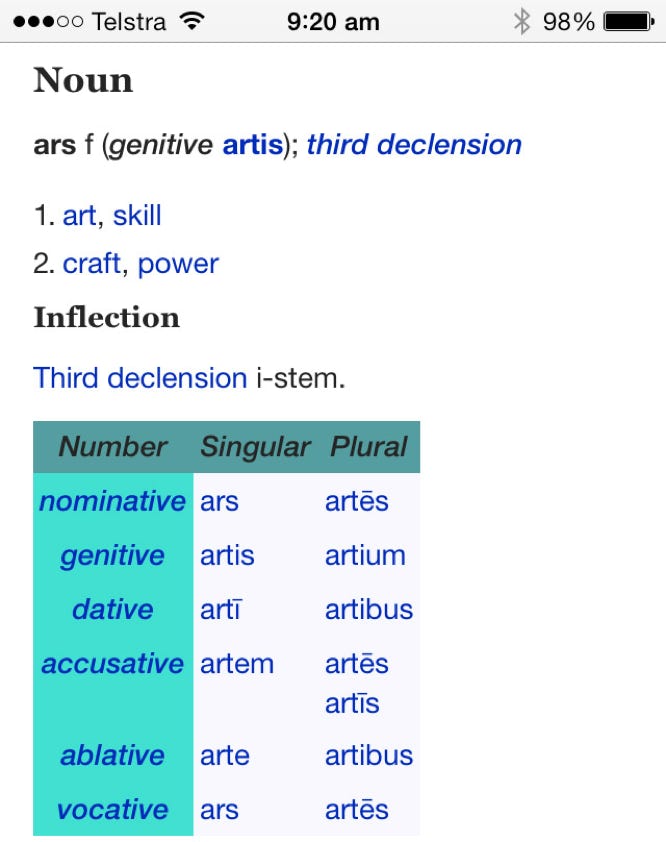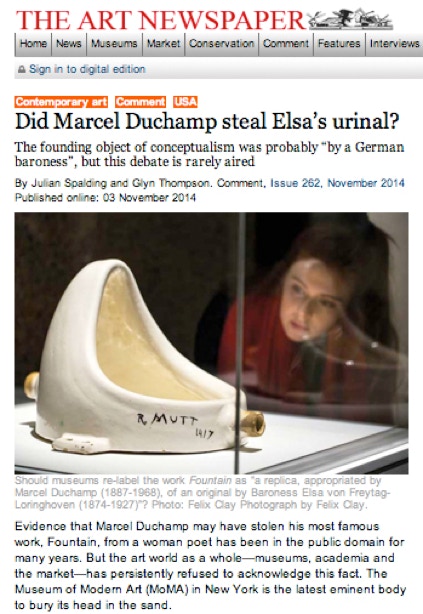“avant-garde |ˈavänt ˈgärd; ˌavä n |
noun (usu. the avant-garde)
new and unusual or experimental ideas, esp. in the arts, or the people introducing them …”
Nearly a century has elapsed since Marcel Duchamp's 1915 declaration that "ready-mades" - that is, objects created by someone other than the "artist" - were "art", and that credit for their creation should go, not to their maker, but to whomever it is that declares them to be art.
And, it was 1938, at the International Exhibition of Surrealism (Galerie des Beaux-Arts, Paris) that Salvador Dalí exhibited his installation Rainy Taxi.
Since then the art-intelligentsia manifest the symptoms of the Alzheimer's sufferer. There is no end of art critic or enthusiast who looks at every installation, every "ready-made" and every "found object" declaring them to be totally new, avant garde! "Avant garde" has been turned into the recycling of yesterday's idea. Yet it is surrealism that is declared an anachronism.
Since then, the art-world's pseudo-intelligentsia manifest the symptoms of the Alzheimer's sufferer. There is no end of buffoons looking at every installation, every "ready-made" and every "found object" and declaring such to be totally new, never before seen: avant garde! "Avant garde" has been turned into the recycling of yesterday's idea. For the Duchampian lack of skill is no impediment to "creating”. Another who possesses the requisite skills can be commissioned to create a work for which the Duchampian, the "artist", will take credit because art apparently has no relationship to those who have the skill to create it. Duchamp has provided the means by which those devoid of ability and devoid of skill - τέχνη - can be assuaged of the anguish they feel on their realisation that they possess no attribute of any significance; and that the absence of talent is common.
The "Duchampians", by giving to themselves the unjustifiable credit for the accomplishing of that which has been accomplished by others, do so simply to augment their own social standing, for their own personal or financial gain, and are by such means perpetrating nothing more than a fraud.
fraud | frôd |
noun
wrongful ... deception intended to result in financial or personal gain ...
• a person or thing intended to deceive others, typically by unjustifiably claiming or being credited with accomplishments or qualities …”
Without technique, τέχνη (techne) skill,, one has no art, τέχνη, skill and cannot be an artist.
Post Script. Duchamp's fraud is actually far more insidious. The very idea he claimed as his own never was - it was someone else's, it was Elsa von Freytag-Loringhoven's.
( https://www.theartnewspaper.com/2014/11/01/did-marcel-duchamp-steal-elsas-urinal )
Considerable sums of money, as well as the reputations of both individuals (artists, art historians) and art institutions are invested in, and based on, the Duchamp con. Entire collections of garbage collected as "art" are worthless.


Demetriosvakras: home | Contact | About | Exhibitions | Reviews | Essays | Links
Formative painting gallery | Painting gallery | Drawing gallery | Digital gallery | CGI, Bryce 3d gallery
All images © copyright Demetrios Vakras
I assert the Moral Right over my images per the Berne Convention, 6bis
Additionally, per theICESCR, Article 15, 1. "The States Parties to the present Covenant recognize the right of everyone: (c) To benefit from the protection of the moral and material interests resulting from any scientific, literary or artistic production of which he is the author."
Use of any image from this site to train LLMs ("AI") automatically breaches my Moral Rights
